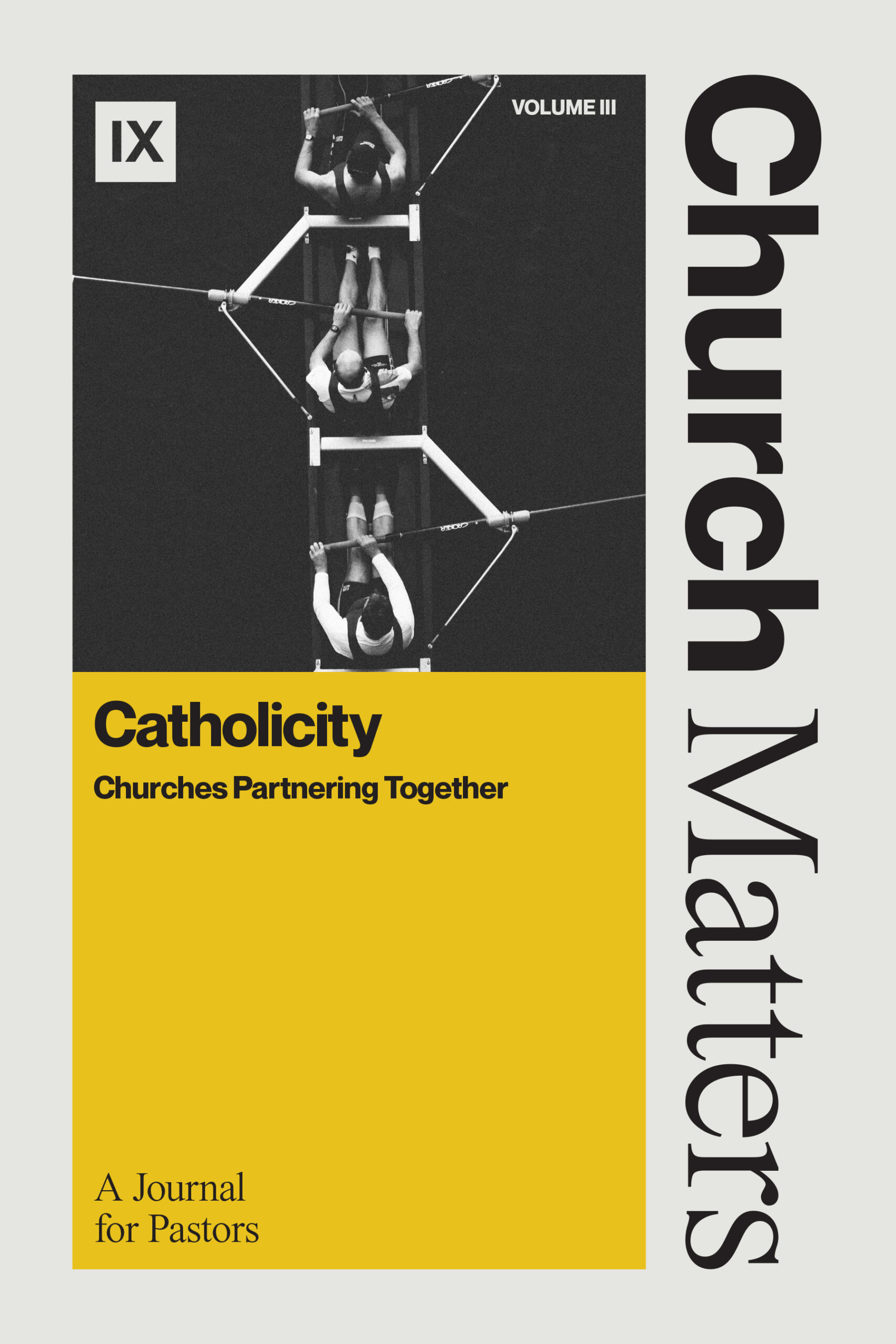Martin Bucer as a Cooperating Pastor
As contemporary Christians look back to sixteenth century Europe, there is a great interest in its theological heritage. The Reformation (or Reformations) altered the shape of Christianity, especially in the West, and set the trajectory of expansive growth for Christian churches across the globe. However, this period is often better known for its theological divisions than a spirit of Christian unity. How would one discern a catholic spirit in a time where new theological traditions (and subsequent denominations) are birthed, often forged through public debates and published disputes?
It is true that emerging theological positions created deep rifts among Christian communities and pastoral peers. In Wittenberg, the excitement of Luther’s reforms was demurred by the growing divide between Luther and his Wittenberg colleague, Andreas Karlstadt. In Zurich, Zwingli eventually stood by as his former pupil, Felix Manz, was executed for his religious views (and resistance to civil orders).[1] Calvin not only supported the public trial of Michael Servetus but also had ongoing strains with Christian members of the Genevan city council. Bloody episodes such as the reign of Mary Tudor in England, the execution of Balthasar Hubmaier, the deaths of Cardinal Beaton and George Wishart in Scotland, and the Münster Revolt pitted either Catholic Christians against reforming ones or even one reformation strand against another.
Against the Reformation’s backdrop of such vehemence and occasional violence, there are also sterling examples of Christian partnership and catholicity. One pastor and reformer that was often at the center of cooperating efforts was Martin Bucer. Best known as a leading reformer in Strasbourg, Bucer influenced reformation efforts in France, Germany, England, and Switzerland. His irenic spirit was displayed in his theological discussions with Catholic, Reformed, Lutheran, and even Anabaptist leaders. Perhaps Bucer should be referred to as the “Cooperative Pastor” rather than simply as the “Strasbourg Reformer.”
Throughout his decades of ministry, Bucer taught and preached through books of the Bible. Some of that preaching later surfaced as published commentaries.[2] One of Bucer’s earliest publications was Instruction in Christian Love (1523), which describes the character traits that should accompany faith in Christ (due to the work of the Spirit). In this work, Bucer briefly outlined the chief qualities that should mark the spiritual leadership of Christian ministry.
Instruction offered early evidence of Bucer’s willingness to find common ground for gospel partnerships. Throughout the following decades, he took the lead in various church partnerships that he believed would further Reformation causes, develop Christian maturity, and expand Christian witness.
At least three pastoral impulses drove Bucer’s gospel partnerships:
1) The Biblical Text as Common Ground
Bucer’s interest in the Bible as the central thrust of theology and church reforms came from the dual influence of both Erasmus and Luther. For Bucer, “Both men advocated a radical return to exegesis of Scripture as the primary method of ‘doing’ theology, and both appeared to have a common concern with the centrality of Christ,” observed one historian. “It was the perception of a common evangelical commitment that permitted Bucer to ally himself with them both, and to see them as partners in a common cause.”[3]
Starting with Erasmus’s humanist influence, Bucer saw the exposition of the Scriptures not just as a key to pastoral ministry, but as a meeting ground where different preachers and theologians could gather to discover God’s purposes for his church. As Bucer writes in his Instruction:
We must above all things adhere to the divine Word, hear it, read it, meditate on it with all diligence, and act accordingly. We must let no man keep us from the Word of God; for it, we must risk honor, life, possessions, and all that which God has given us. For only the Word of God makes us wholesome and blessed. The divine Word brings faith; faith brings love; love brings good as its fruits.[4]
2) Pastoral Ministry as a Priority over Theological Victories
Bucer was well-known for his commitment to pastoral care as integral to pastoral ministry. This approach prompted him to provide respite to a theologically diverse group of religious refugees in Strasbourg. He hosted Anabaptists, Zwinglians, Lutherans, and some Catholics during his ministry. Bucer would engage his guests in theological discussion while demonstrating Christian kindness. He was neither theologically passive nor unnecessarily divisive.
For example, in December 1526, Bucer partnered with Wolfgang Capito in a public debate with the Anabaptist leader Michael Sattler. Though Bucer differed with Sattler’s positions, when the latter was martyred in Austria several weeks later, Bucer referred to Sattler as a “martyr of Christ.”[5] In Bucer’s Instruction, he describes the gracious nature of ministry as an element of leading others to truth:
The minister therefore willingly stakes not only his body and sacrifices not only his material possessions but also his spiritual life and blessedness, if only his preaching the divine Word would lead others to a knowledge of God, to blessedness, and thereby to praise and eternally to glorify the goodness of God.[6]
This shepherding mentality created his most influential pastoral mentorship with a young John Calvin during his exile in Strasbourg from 1538 to 1541. Later, in Calvin’s prefaces to his commentaries on Psalms and Romans, Calvin would note Bucer’s influence and commend Bucer’s labor as a faithful exegete.[7] Stephan van der Watt writes, “Above all, Bucer’s friendship and fatherly support were determining factors that molded Calvin’s future career as a church Reformer. He truly helped Calvin regain his sense of vocation for Christian ministry and the church.”[8] Bucer’s selfless mentoring not only restored a leading reformer but also helped Calvin see that his ministry must be centered on pastoral care.
3) Humility as a Pastor’s Defining Trait
Bucer asserted that pastoral ministry should be marked by humble service. In Instruction, he pointed out that Christian service should be prompted by “unfeigned love which springs from faith.”[9] Bucer identified selfishness as the main barrier to service in the church. He writes, “If a man, however, wishes to follow Christ, that is, to be turned around and brought again in his right standing and character, he must take all that love which (his) poisoned nature had him place on himself, and put it all on his neighbor.”[10]
Ministers were not immune to pride and self-love. However, humble faith and the Bible are the key tools for a pastor dying to self. Bucer writes,
For if faith were whole, complete, if the heart were giving itself completely to the Scripture . . . it would be impossible for man to seek his own or to live only for himself, because he would certainly and precisely know from the Scripture that by such self-seeking, he would destroy himself, lose his life and everything (Luke 9:24; John 12:25).[11]
Humility opens the door to enduring faith amid uncertainty and conflict. Bucer often found himself drawn into religious conflicts, but his desire for a healthy church that exemplifies the gospel caused him to be steadfast in his catholic impulses. This resolve helped him forge Christian unity in a time of disunity.
When Bucer exiled himself from Strasbourg in April 1549 due to Charles V’s victory over the Schmalkadic League, he received several offers for refuge: Calvin in Geneva, Melanchthon in Wittenberg, and other reformers in Denmark and Basel. He eventually settled in Cambridge for two years as Regius Professor of Divinity, extending his influence on the Reformation in England.[12] Due to his commitment to cooperation for the gospel and reforms in the church, even his exile produced lasting pastoral fruit.
* * * * *
[1] Stephen Eccher, Zwingli the Pastor: A Life in Conflict (Bellingham, WA: Lexham Press, 2024), 140-142.
[2] For some examples, see Jason K. Lee and William M. Marsh (eds.), Matthew in the Reformation Commentary on Scripture (Downers Grove: IVP Academic, 2021), 14-15, 26, 227-228.
[3] N. Scott Amos, “Bucer among the Biblical Humanists: The Context for His Practice in the Teaching of Theology in Strasbourg, 1523-1548,” RRR 6.2 (2004), 141.
[4] Martin Bucer (trans, Paul T. Fuhrmann), Instruction in Christian Love (1523) (Louisville: Westminster John Knox, 1952), 51-52.
[5] Martin Gershat (trans. Stephen Buckwalter), Martin Bucer: A Reformer and His Times (Louisville: Westminster John Knox, 2004), 69.
[6] Instruction, 30.
[7] See Calvin’s “Epistle Dedicatory” in his Commentary on Romans (accessible at www.ccel.org).
[8] Stephan van der Watt, “Wholehearted Commitment to Sound Pastoral Theology and Care: What Martin Bucer and John Calvin Can Teach Today’s Pastors,” CTJ 56.2 (2021) 239.
[9] Instruction, 46.
[10] Instruction, 29.
[11] Instruction, 49.
[12] N. Scott Amos, “The Alsatian among the Athenians: Martin Bucer, Mid-Tudor Cambridge and the Edwardian Reformation,” RRR 4.1 (2002) 97-98.
Related Multimedia

On Local Churches and Sending Agencies (Missions Talk, Ep. 34)
By J. Mack Stiles, Ryan Robertson









